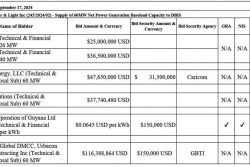BEIJING, (Reuters) – A Chinese government body has released its own online mapping service, designed to compete with Google Earth’s popular satellite mapping service, that could spell more trouble for Google’s services in the mainland.
Google and China have been at odds since last year, when a serious hacking attack originating from China prompted Google to ultimately withdraw its search service from the mainland.
“Map World” was unveiled by the State Bureau of Surveying and Mapping yesterday, and can be accessed via www.tianditu.cn. The home page features an expansive view of the Great Wall of China, capped by clouds in the shape of the continents.
Google had not applied for a Web mapping licence in China, the English-language paper said, but Google’s mapping service is accessible from computers on the mainland.
Regulations issued by the bureau in May required companies providing online map and location services to apply for a licence. In order to apply, firms would have to keep map servers storing data within the country.
Google said at the time that it was studying the new rules, which gives China the right to shut down providers that fail to qualify for a licence.
Google’s video-sharing site YouTube and photo service Picasa are both blocked in China, and its Google docs application is sometimes difficult to access. Searches originating in China are now directed to its search engine based in Hong Kong.
Google does not keep servers in mainland China.
At least some of Map World’s high-resolution images of central Beijing appear to have been taken on Oct 1, 2009, when streets were cleared for the tanks and floats of the National Day Parade, which are visible on the street.
Map World only provides high-altitude images outside China, with the other side of the Chinese-North Korean border a stark white blank once a certain resolution is passed. Other countries also turn up a blank page at close resolution.
Taiwan, which China claims as a renegade province, cannot be viewed at the same resolution as the mainland.
Much mapping in China is still subject to state-secrecy restrictions, creating headaches for mining companies unable to source high-resolution deposit maps, and even for hikers.





